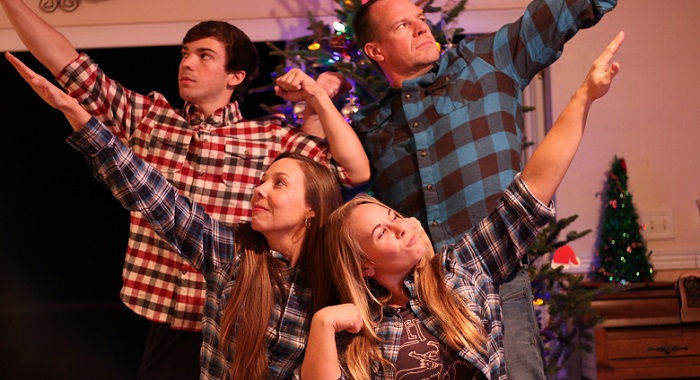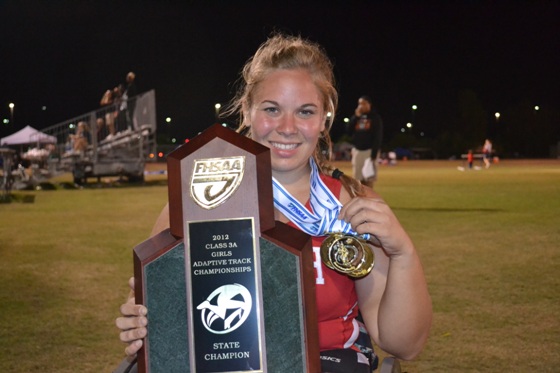
Sticks and Stones
There’s a scene in the movie Wild where Laura Dern and Reese Witherspoon are in a car and Reese (the daughter) tells Laura Dern (the mother) that she’s a more sophisticated reader than her mother. The mother turns to her daughter and tells her that’s the way it’s supposed to be.
The scene hit home for me because it’s exactly what I wanted for my daughter, Arielle. I raised her to value education, to question, to not accept roles society places on her based upon gender. However, when she comes home and talks about all her interesting college courses, books she’s read, and discussions she’s had with her peers and professors, I have mixed emotions. Most of me is really excited for her and happy she loves school, part me yearns to read the same books and learn everything she’s learning, but another part of me is frightened over our changing mother/daughter roles. I must learn to balance the role of mother, authority figure who will always be there for her, with mother who is open to new ideas and open to her educating me on issues I’ve never explored. I must let go of the ego that tells me I’m right because I’m the mother and listen to my daughter—then tell her I’m right because I’m the mother.
For example, we were talking about movies and I mentioned being upset because an actress who had previously played such an intelligent, strong character in a television show was starring in an upcoming film and the trailer had portrayed her character as a slut. Yep, I used the word slut. While I felt OK using the word aimed at a fictional character and not an actual person, it still was a bad choice. From my point of view, I’m tired of seeing male characters objectify female character’s bodies for the laugh. I think it’s time to get more creative with women’s roles. Arielle immediately informed me that using the word slut to label women was bad. I’ll be honest, I had to take a deep breath. This was my baby girl, young adult daughter educating me on the proper use of language and how my improper use of a word could hurt women. Then I remembered this was the strong young woman I raised and good for her for calling me out when I made a mistake. This led to a long discussion about labels, and women’s roles in labeling other women, which led to an even longer discussion about words that hurt, disability, inspiration and society.
I tried to explain to Arielle that people can make mistakes and say things that are hurtful without fully understanding they’re being hurtful. If they’re confronted and told what they said was offensive when their intent was innocent they can shut down and not be open to hearing how their words offended someone. However, does that mean that Arielle or anyone else who is offended by another’s words must endure comments that cause pain simply to not hurt the feelings of the speaker?
Here are some words and phrases, like slut, that are used in society that can cause others pain. Retard, stupid, gay, the phrase, “you’re such an inspiration” and, “What happened to you?” Too many times complete strangers have approached Arielle and said “What happened to you?” It’s not a fun question to answer especially with someone she doesn’t know. It hurts.
Since I’ve had several discussions with Arielle about the inspiration phrase I feel I can write about it. Please understand that what I write is strictly my point of view told from my experience having a daughter who was paralyzed at the age of ten, and watching and listening to things that have happened to her since she started using a wheelchair.
Arielle has had many instances where she’s been in the grocery store, or out and about when complete strangers have come up to her and told her she’s an inspiration or “it’s so good to see you out, as if the wheelchair should keep her from grocery shopping and make her stay indoors. Buying milk and getting to and from class isn’t inspirational. Although those people may feel as though they’re giving her a compliment the implied meaning is that the wheelchair makes them see her as weak unable to perform daily tasks.
Does this mean that Arielle never wants to be viewed as inspirational? No, it means like everyone else she only wants to be viewed as inspirational if she’s done something inspirational. All the training she does for marathons as an athlete on the Univ. of Illinois wheelchair track team is inspirational. Being the first high school wheelchair athlete in Florida and paving a path for others to compete on their high school track teams is inspirational. Even to people who knew her before her accident and watched how she handled such a change in her life with bravery and strength, to those people, she’s inspirational. To simply be called an inspiration because she uses a wheelchair is to see her as not equal and that is hurtful.
Arielle taught me that the only way to get beyond the fear of words is through open discussion. What comes out of our mouths is from learned experience and what we see in the media. While I don’t think we mean to hurt one another with our words or actions I think not being open to hearing others views keeps us in ignorance and by default perhaps we are to blame for what we’ve said or done because we expect everyone to think like we think. Claiming innocence because there was no intent to hurt someone is not a good enough excuse. If we truly don’t mean to hurt others with our words then we must be willing to have an open discussion, set aside our ego, and hear how our words can offend others even if that open discussion is being led by your little girl.
…words can be the cruelest of weapons. Eleanor Roosevelt



2 Comments
Jamie Ayres
Another well said post. I’m struggling with the same thing with my daughter, even though she just started high school. She already has AP classes and I can’t believe how much smarter she is than I was at her age. It is a humbling experience, even though I’m so proud of her accomplishments. Thanks for your wonderful insights.
kdrausin
Thank you, Jamie.